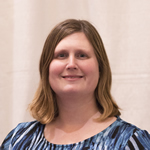Presenter
Sheila Rabun
Description
Stakeholders across the research and scholarly communication landscape are increasingly recognizing the need for name disambiguation and system interoperability to measure impact, meet reporting requirements, and reduce administrative burden while ensuring that researchers’ contributions are accurately linked across institutions and workflows. Research libraries in the US are taking the lead in adopting ORCID (Open Researcher & Contributor Identifier) as a solution for persistently linking researchers to their contributions and institutional affiliations over time while also serving as a mechanism for interoperability in sharing data across systems. In January of 2018, four consortia in the US – the Big Ten Academic Alliance (BTAA) the Greater Western Library Alliance (GWLA), LYRASIS, and the NorthEast Research Libraries (NERL) – joined forces to form a nation-wide consortial approach to ORCID membership for research institutions in the US, known as the ORCID US Community. With LYRASIS serving as administrative lead, the primary goal of the ORCID US Community is to encourage ORCID adoption and foster a community of practice around ORCID in the US, as research institutions continue to join the growing circle of funders, publishers, and other stakeholders benefiting from research relationships and identity management in the ORCID ecosystem.
With this lightning presentation, participants will learn about the current trends, challenges, and opportunities of ORCID adoption at libraries and research institutions at large, featuring examples from across 125+ research libraries in the ORCID US Community.
 Jesse A. Lambertson is the Metadata / Digital Resources Librarian at University of Chicago’s Law Library, having arrived not too long ago from Georgetown’s Law Library. He is interested in metadata, of course, but also how systems process it, make it viewable, and enable its use. He is an active member of UChicago’s LD4P Sinopia team where he catalogues and tests workflows in linked-data cataloguing. He also plays guitar and is currently studying Koine Greek.
Jesse A. Lambertson is the Metadata / Digital Resources Librarian at University of Chicago’s Law Library, having arrived not too long ago from Georgetown’s Law Library. He is interested in metadata, of course, but also how systems process it, make it viewable, and enable its use. He is an active member of UChicago’s LD4P Sinopia team where he catalogues and tests workflows in linked-data cataloguing. He also plays guitar and is currently studying Koine Greek.  Joyce Garczynski is the Assistant University Librarian for Development & Communications at Towson University’s Albert S. Cook Library. In this role she teaches journalism students about the research process, manages her library’s social media, and raises money for her library. She obtained her Master’s Degree in Library Science from the University of Maryland, College Park in 2009 and has a Master’s in Communication from the Annenberg School at the University of Pennsylvania. She also authored a book titled, “Fundraising: How to Raise Money for Your Library Using Social Media” and co-authored “Fundraising for Academic Libraries: A Practical Guide for Librarians” which is being published by Rowman & Littlefield in 2020 .
Joyce Garczynski is the Assistant University Librarian for Development & Communications at Towson University’s Albert S. Cook Library. In this role she teaches journalism students about the research process, manages her library’s social media, and raises money for her library. She obtained her Master’s Degree in Library Science from the University of Maryland, College Park in 2009 and has a Master’s in Communication from the Annenberg School at the University of Pennsylvania. She also authored a book titled, “Fundraising: How to Raise Money for Your Library Using Social Media” and co-authored “Fundraising for Academic Libraries: A Practical Guide for Librarians” which is being published by Rowman & Littlefield in 2020 .